![]()
I have not received any encouragement or inducement from anyone to write about or discuss any information related to the Manchester Attack. All research discussed is exclusively my own and based solely upon information freely available in the public domain.
![]()
I was delighted to have the chance to discuss my latest book – The Manchester Attack: An Independent Investigation with Mel K from the Mel K show. The book explores the evidence unearthed and reported by investigative journalist Richard D. Hall and adds vital new evidence that shows the Manchester Arena bombing was a hoaxed false flag.
The book also explores the propaganda techniques used to convince to accept the official narrative and the truly unbelievable developments in the case of Richard D. Hall who, for reporting the evidence exposing the hoax, now finds himself facing civil prosecution in the High Court.
![]()
![]()
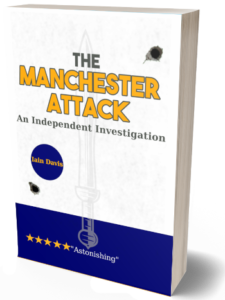
– buy the Paperback –
![]()
Order Directly from Iain Davis (£15.49 – inc. p&p)
Please Note: you will be directed to PayPal. It is important that PayPal has your correct delivery address in order for you to receive your book.
Please rest assured your data is handled with strict confidentiality and data handling is compliant with GDPR.
Please see Terms and Conditions![]()
![]()
Other Available Copies
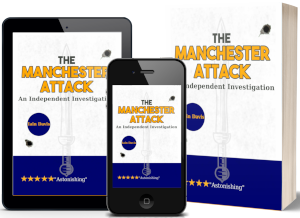
Buy The Manchester Attack paperback from Amazon for £19.99
Buy The Manchester Attack Ebook from Amazon for £4.99
![]()
Please don’t forget, the pdf version is FREE to Iain Davis subscribers.
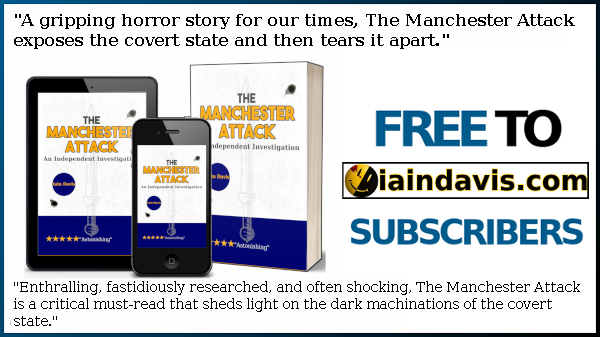

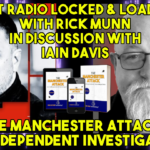
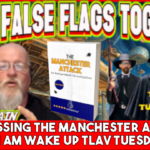
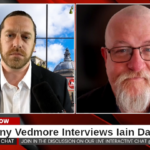
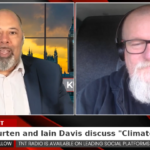
Hey people!!!!!
Good mood and good luck to everyone!!!!!
Hello Iain,
I hope this goes into moderation because I wrote this in response to your circulated paper by Boetie. I wasn’t sure where else to put this and it is only really in response to you, and not for a public comment especially as it is too long. I appreciate your effort in writing and sending out material and hope this feedback is useful. I think that 500 years ago was a crucial time.
I have decided not to ‘wander off’ and to offer some thoughts on the piece you circulated.
I have a particular interest in Renaissance humanism of which La Boetie seems to be a product. It is well known that the Protestant Reformation (of which the Huguenots were a major part) was an offspring of humanism. It is perhaps less well known that its second offspring was a particular type of ‘occult’ philosophy that came through the incredibly influential Neoplatonic Florentine academy established by Cosimo de Medici and run by Marsilio Ficino. This is important because one of my criticisms of Rothbard is that he makes no effort to place this work in its historical context and this leads him, in my opinion, to misinterpret some of La Boetie’s statements.
It is difficult to write a short introductory essay as Rothbard has done and cover every concept in detail. I understand this, but Rothbard takes the extremely profound ideas of La Boetie (such as ‘reason’) and offers no discussion of what he might mean by this, or, more importantly, what La Boetie and his contemporaries might have meant by this. This is very important because it was the occult philosophy that gave Renaissance humanism its major manifesto which oftentimes seemed to be opposed to the emergent Protestant dogma.
This manifesto is Pico della Mirandola’s Oration on the Dignity of Man. Pico was a pupil of Marsilio Ficino who blended the Jewish mystical kabbalah with Christianity and Ficino’s ‘Christianised’ version of hermetic and Neoplatonic occultism.
He famously began his Oration with a reference to a passage in the hermetic text The Asclepius which exclaims:
“O, Asclepius, a human being is a great wonder, a living thing to be worshipped and honored: for he changes his nature into a god’s, as if he were a god; he knows the demonic kind inasmuch as he recognizes that he originated among them”
This idea that mankind had a semi-divine origin became the rallying cry of the Renaissance and the feature of humanism that gave this belief credence was the increasing confidence that was being placed in the intellect of mankind. Indeed, Asclepius is explicitly informed that the true dignity of man lies in our ability to reason and thus know the secrets of the gods.
This was a departure from the mediaeval worldview which saw corrupted and fallen mankind as part of decaying and unstable nature and of the general deterioration from the Golden Age of the Edenic paradise. This was not mere superstition and they had every right to believe this, particularly by the end of the 14th century which had been nothing short of cataclysmic.
This was the century in which the Italian poet Petrarch founded the (initially) literary project of humanism which looked back longingly to the stability of a supposed Golden Age which had allegedly been underpinned by a universal, divinely endowed, knowledge or Prisca theologia. This knowledge had also been lost, but the belief in its existence fed the fascination with ancient writers who were deemed to be closer to the pure source of learning. But it was also the century when massive climatic changes (partly due to the end of something called the solar maximum) that began early in the thirteen hundreds led to years of extreme weather beyond anything that we are experiencing today. Huge electrical storms, weeks of torrential rain and freezing temperatures led to widespread crop failures. Sheep and cattle herds were decimated by devastating murrains. Famine swept the continent, and cannibalism was not unheard of. Bizarre phenomena, such as a tower of light in the sky above the Pope’s residence at Avignon, fed the mounting sense of foreboding. The Black Death then broke out in 1346 and had killed anywhere between 50 and 200 million people by 1353.
The whole population of Europe was traumatised. The terror was so great that people attributed the events to the wrath of God, and large bands of penitents paraded through the streets of Europe, whipping themselves and pleading with God for forgiveness. They became known as the flagellants, and members of the sect, wearing white robes, dragging crosses and sometimes numbering in their thousands, roamed the countryside in a religious frenzy. The Church did everything that it could to suppress the sect and had decisively moved against it in the 1370s when hundreds of people in Germany and Belgium were carried away in the so-called dancing plague. The plague involved wild lascivious, convulsive, and grotesque dances from which the participants were powerless to break free. As the dancers made their way wildly through the streets, onlookers found themselves violently pulled into the spectacle as if by some unknown force. The epidemic spread from city to town to village, leaving some of the afflicted permanently mentally damaged. Sporadic outbreaks occurred for over two centuries, involving thousands of people. Similar outbreaks also occurred in Italy.
These events were partly responsible for fuelling millenarian movements throughout Europe. One group called for the annihilation of the pope and all clergy who it was believed were a stumbling block to the imminent arrival of the ‘Anointed Saviour’ (predicted for 1467) and the ushering in of a ‘Third’ or Golden Age. Even the Medici lost control of Florence for three years to the ‘Messianic Republic’ of the Dominican Girolamo Savonarola. Whilst Savonarola was executed in 1498, power was not restored to the de Medici family until 1512. The continent struggled with popular uprisings and the gradual break up of political and religious unity.
Petrarch died in 1374 in the middle of the upheavals that I have described above. Thus, it is hardly surprising that man was searching for a more solid foundation upon which to plant his feet. Petrarch’s ‘re-discovery’ of classical learning may not have had the impact that it did, had it not arisen in these supremely shaky times. The idea that this lost knowledge could be regained as the perennial wisdom (Prisca sapientia) was eventually to form the core of the thought of Marsilio Ficino.
By the time of the birth of Boetie in 1530, the transition from the medieval to the early modern worldview was by no means complete and people of this time were less concerned with ‘freedom’ and more with the battle between order and chaos, and with legitimate and illegitimate authority. These are perpetual themes in Tudor and Renaissance literature. They gave assent to authority because they believed that it was part of God’s order. Now this does not mean that people did not have a sense of tyranny and grievance—the longing for the peace, justice, stability and harmony of the ‘Golden Age’ was real and widespread, but it is questionable that it was believed that this could be attained merely by withdrawing consent from whoever the current ruler happened to be. This does not imply that the majority of people were stupid or brutish. But people did not wish to upset the natural order which, in this worldview, gave the balance of natural forces and human authority a commonality of being. It was by no means clear that ‘freedom,’ particularly a freedom as ill-defined as that of Rothbard and Boetie, was the key to bring about the Golden Age.
Nevertheless, we are told that
‘For reason shows us that nature has, among other things, granted us the common gift of voice and speech. Therefore, “there can be no further doubt that we are all naturally free,” and hence it cannot be asserted that “nature has placed some of us in slavery.” Even animals, he points out, display a natural instinct to be free. But then, what in the world “has so denatured man that he, the only creature really born to be free, lacks the memory of his original condition and the desire to return to it?”’
Let’s leave aside what the author means when he refers to ‘slavery’ But did ‘nature’ give us the power of speech? If so, this proves nothing about freedom. Firstly in the modern account ‘nature’ is an impersonal collection of forces and phenomena that lack the capacity to enter into the purposeful activity of ‘giving’. If speech arose from the random evolutionary forces of purposeless nature, then speech lacks the dignity and meaning implied by the term ‘gift’. Speech is just a random evolutionary quirk which some people are better able to use than others in the game of domination and survival. It says nothing about the distribution of mastery of the power and therefore nothing about the actual equality or relative freedom enjoyed by members of the species. It certainly does not infer anything about ‘natural’ rights as nature undisturbed knows nothing about ‘rights.’
If speech is ‘granted’ then this act must be carried out by a force/being who has the desire and will to confer a gift to the dignity of the entire species. If a gift is thus given to another class of beings rather than to another – to humans and not bees for instance—then you would imagine that this choice was made for a reason—that the giver had some purpose in giving this gift that implies that the recipient will use the power in a certain way. In other words, it confers duties on the recipient as well as implied rights.
To argue that animals prefer not to be caged is a very limited view of freedom. They are not born free, and the clearest examples of this are bees born in three castes with very specific duties and roles and some higher primates where only dominant males and females can mate and reproduce. The bars of nature hold us all of us in one way or another even if we do not see them. Is this not part of the current transgender rebellion against nature itself? But the greatest insult to the natural rights of humanity is death. It turns out that our most basic right to life itself is very tenuous indeed.
But La Boetie was not an atheist and presumably believed that human reason is God-given. Indeed Rothbard quotes:
Reason is our guide to the facts and laws of nature and to humanity’s proper path, and each of us has “in our souls some native seed of reason, which, if nourished by good counsel and training, flowers into virtue, but which, on the other hand, if unable to resist the vices surrounding it, is stifled and blighted.”
Yet the question remains who is to give ‘good counsel’? Who is to train? Who is to define virtue? Who defines vice and by what authority? What is humanity’s ‘proper path? Is it just to be ‘free’? What is freedom? Is there any legitimate authority who can define these terms, or is it to be left to every individual to define ‘vice’ and ‘virtue for themselves? Is this not the trap of the ‘noble savage’ that claimed Rousseau and has caused untold havoc in the modern educational system not to mention the murderous years zero of the French Revolution and Pol Pot?. Human will may not be totally depraved as Luther believed, but we have had several thousand years of experience to allow legitimate questions regarding the existence of an uncorrupted ‘native seed of reason’ that will emerge naturally if only given the right soil and left alone.
Rothbard highlights the ground-breaking nature of this work for the concept of the ‘universal rights of the individual’ which he rightly says was largely meaningless at the time. We are also told of the ‘Natural liberty, equality and fraternity of man’ and how ‘Natural law and natural rights justified forcible resistance to tyranny’. But my point is that impersonal nature gives no rights. If there is a God then he may confer rights. But, if Boetie was influenced by the occult philosophy of the day, as most major humanists were, then there is a third option and one which explains why Rothbard could only explain part of this work by invoking satire which I believe to be incorrect.
The occult philosophy by drawing on Neoplatonic belief regarding the transcendent realm of the forms which is too involved to describe here seemed to particularly imply that it was the role of mankind to reify abstract concepts. This means that humanity as a whole could if manipulated by an enlightened elite, manifest the idea of ‘justice’ or ‘beauty’ or ‘the good’. This would entail playing with such concepts as ‘freedom’ and ‘equality’ and passing through an era of notional individual rights only to arrive at the ‘higher’ concept of the rights of mankind as a whole to which the individual must accede for the greater good.
If this is true, then Boetie’s paper is now of limited utility particularly as it relies on the negative concept of a withdrawal of consent without putting forward any positive counter to the predominant narrative of radical unification. Rothbard has misunderstood the nature of symbolism the power of which Boetie rightly invokes in his celebration of the work of the poets in the formation of the entity of France itself. Yet he also allows himself to play with ideas of individual freedom which the pied pipers of an ‘enlightened elite’ will use to draw the masses away from old forms of power so that they may be better absorbed into the new. Boetie, as were many humanists, was particularly concerned with using the occultism of Ficino et al to unify not only Protestants and Catholics but also Muslims and Jews in a universal religion the truth of which could be ‘proved’ through the Kabbalah. The paper is, however, very useful as it raises issues that I think the ‘freedom’ movement often skates over. In my opinion, our problems date back to exactly this period, and much that is happening today can be traced back to early humanism and the Renaissance occultism that is nestled within it.